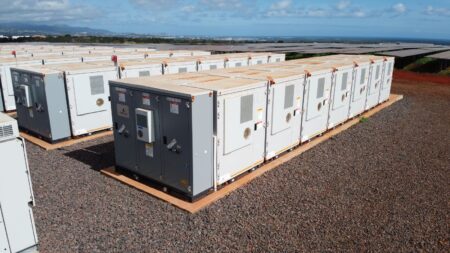South Korea-based LB Investment, which has $1.2 trillion Assets Under Management (AUM) as of 2023, has announced its participation in the 2024 AIM Congress. The firm will showcase a diverse portfolio of startups and companies, representing cutting-edge innovation and disruptive solutions across industries. Among the…
Meg Whitman, US Ambassador to Kenya, highlights key investment opportunities in Kenya, particularly in the creative industry and clean energy.…
UN faults UK-Rwanda asylum treaty citing concerns on potentially harmful impact on global responsibility-sharing, human rights, and refugee protection. Spearheaded…
Namibia’s Mopane field could hold up to 10 billion barrels of oil, Galp announces. Tests on Mopane-1X well in January…
Chronic instability plagues the existing power grids, worsened by the pressing need to connect growing populations. The advent of renewable…
Remittance inflows for March grew to $407.8 million, up from $385.9 million…
Featured
International arrivals increased from 1.48 million in 2022 to 1.95 million as…
Industry & Trade
Artificial intelligence in Africa can potentially propel the fintech industry into a…
Countries
UN faults UK-Rwanda asylum treaty citing concerns on potentially harmful impact on global responsibility-sharing, human rights, and refugee protection. Spearheaded by Prime Minister Rishi…
Namibia’s Mopane field could hold up to 10 billion barrels of oil,…
Kenya’s economic resurgence in 2024 proving a reality following a notable upturn…
Cairo, Egypt, holds third place after Athens and Manilla, Philippines. India stands out,…
Regional Markets
East Africa’s economic growth is projected to grow at 5.3 and 5.8 per cent in 2024 and 2025-26, respectively. The…
Tech & Innovation
South Korea-based LB Investment, which has $1.2 trillion Assets Under Management (AUM) as of 2023, has announced its participation in the 2024 AIM Congress. The firm…
Editor's Picks
International arrivals increased from 1.48 million in 2022 to 1.95 million as…
Africa
Meg Whitman, US Ambassador to Kenya, highlights key investment opportunities in Kenya,…
Industry & trade
Meg Whitman, US Ambassador to Kenya, highlights key investment opportunities in Kenya,…
Money Deals
A key component of successful cryptocurrency investment is utilizing cryptocurrency exchanges effectively.…
Investing
Chronic instability plagues the existing power grids, worsened by the pressing need…





































